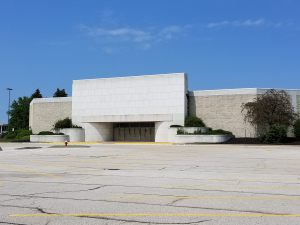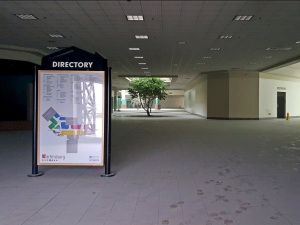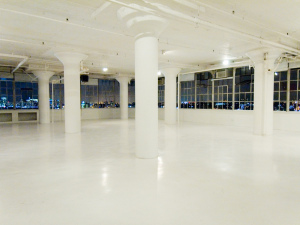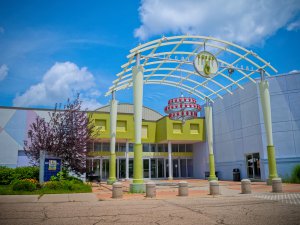Here are seven of the best photos that readers added to the Consumerist Flickr Pool in the last week, picked for usability in a Consumerist post or for just plain neatness. [More]
dead malls
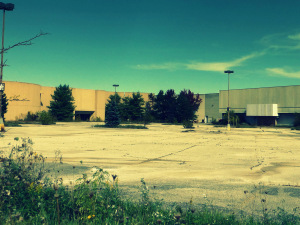
What Killed The Malls Of The ’70s & ’80s? Newer, Better Malls, Not Amazon
Why are American malls dying? Conventional wisdom often points the finger of blame at Amazon and a desire for shopping from home in your pajamas, but a new analysis claims that the real culprit is competition from newer, better malls that aren’t feeling the same pain as their withering forefathers. [More]

Mall Owners Let Properties Go Into Foreclosure, Walk Away
It’s not hard to believe that the owners of malls might be looking to get out of the mall business. Developing shopping centers may have looked like a solid investment for most of the last 60 years or so, but now owners are calculating that it’s better to let them go into foreclosure than to try keeping them open. [More]

Consumerist Friday Flickr Finds
Here are seven of the best photos that readers added to the Consumerist Flickr Pool in the last two weeks, picked for usability in a Consumerist post or for just plain neatness. [More]
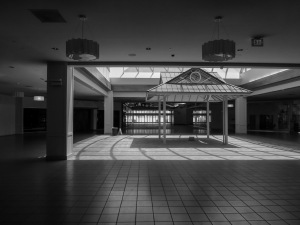
Florida Church Raising Money To Revive Dead Mall
Due to changes in demographics and shopping habits, the American landscape is littered with dead malls. The Ponce de Leon Mall in St. Augustine, Florida, has closed the mall common areas and only its anchors with their own entrances have stayed open. One of those spaces is rented to a non-denominational church. Now the mall’s owner has offered the church the opportunity to buy the entire mall, and they’re raising money to make the down payment. [More]
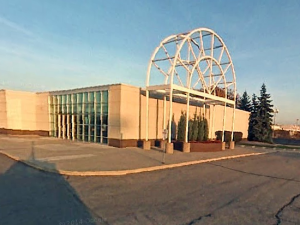
Detroit-Area Shopping Center Goes From Nation’s Oldest Mall To Nation’s Newest Dead Mall
If you spend much time on Consumerist, then you’re probably aware of the current sad state of the world’s malls; from the former largest mall in the world being demolished to those full of fish or snow covered, it isn’t exactly a pretty picture. Today, we learn that another historic shopping center will soon trade in its purported title as the nation’s first regional shopping mall for that of the latest “dead mall.” [More]
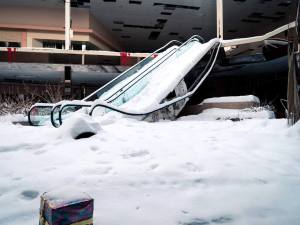
Broken Skylights Turn A Dead Mall Into A Pastoral Snowscape
In Thailand, when an abandoned mall lost its roof, it filled with water, which attracted mosquito larvae, and then neighbors stocked it with fish. In Akron, Ohio, an abandoned mall lost its glass skylights, which meant that in the winter the building filled with snow. Here is your post-apocalyptic winter wonderland. [More]

Dead Mall Overtaken By Fish Will Be Torn Down
Here in the United States, we’ve been solving the problem of how to re-develop our dead and dying malls into something beneficial to communities and to businesses. Over in Thailand, though, a former mall took a strange turn before being completely demolished. The building filled with water, forming a pond, and local residents stocked that pond with fish to keep mosquito infestations down. [More]
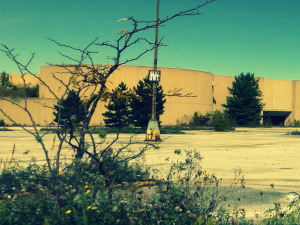
Why Are There So Many Dead Malls? The Middle Class Is Dying, Too
Dead malls are in the news often lately, whether they’ve become self-aware, are being reduced to rubble, or are being turned into condos or houses of worship. Even teens don’t want to hang out there anymore. Why is it, though, that malls that once clothed and entertained the middle class are dying out? What, if anything, will take their place? [More]
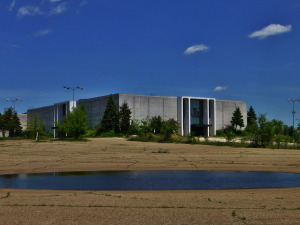
The Afterlife Of America’s Dead Malls
When a mall dies, what happens to its corpse? If the mall failed because of too much competition, renovating the mall space and building a new one doesn’t make a whole lot of sense. As America deals with the massive carcasses left over from the heyday of in-person commerce, dead malls are being re-used in many ways: some that you might expect, and others that you might not. [More]
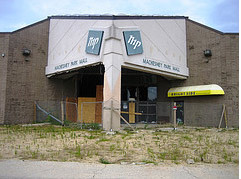
As Offline Retail Dies, Commercial Real Estate Apocalypse Looms
As we do more and more of our shopping while sitting on our couches in our pajamas with an Ultrabook, we’re destroying a glorious American institution: the mall. Realspace retailers large and small alike have gone bankrupt and shut down or scaled back: a process that the recession only sped up. The best case scenario? Those former malls might become community colleges or gain some condos. What’s more likely? Rotting husks of shopping centers dotting our cityscapes, dragging down property values and making everyone sad. [More]


